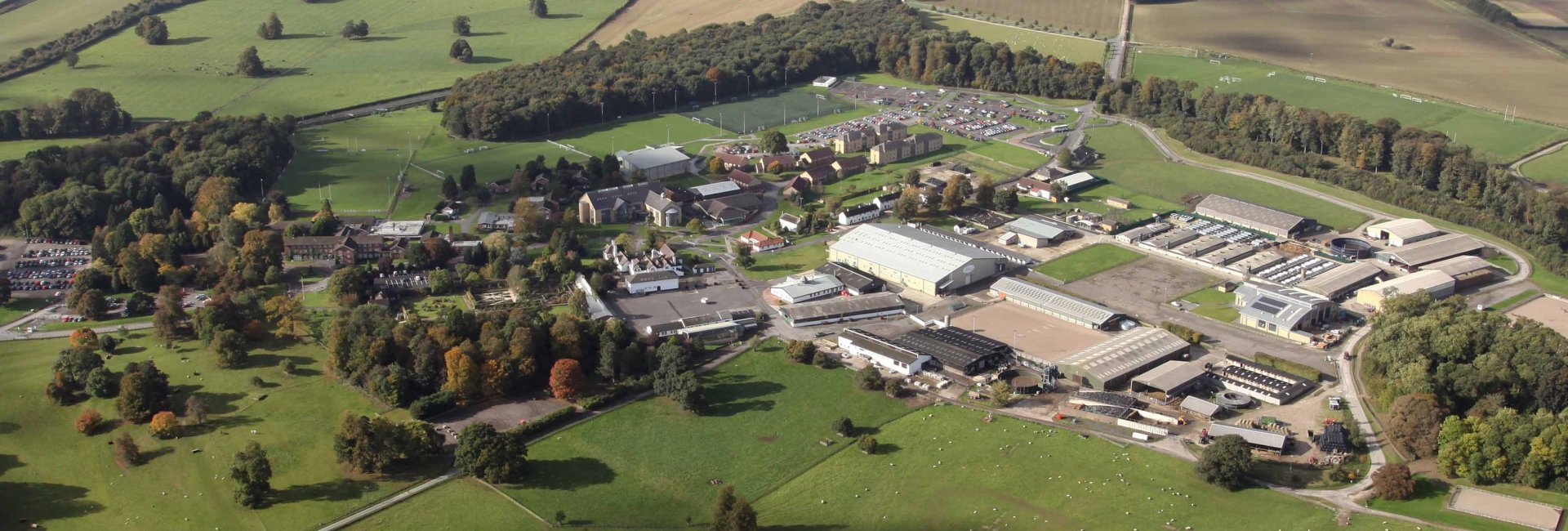University Centre Bishop Burton Post-18 Open Event
14 Jun 2025, 10:00
Beverley, East Yorkshire


Precision Crop Technology is widely accepted as the future of UK and global farming, helping farmers optimise inputs to feed a growing global population. This course will future proof your learning, preparing you for a career in the ever-changing agricultural sector.
You will learn about a wide variety of components, such as data sensors, connected devices and remote-control tools to ensure you are ready for employment. The course aims to optimise field-level management with regard to crop science (by matching farming practices more closely to crop needs e.g. fertilizer inputs) and environmental protection (by reducing environmental risks and footprint of farming e.g. limiting leaching of nitrogen). You will make use of satellite technology allowing real-time management of crops and fields, to monitor and reduce the environmental impact of farming.
What will I study?
Year 1
Academic, Employment and Professional Skills
Fundamentals of Business
Industry Skills for Agriculture
Precision Crop Technology
Mechanisation
Plant and Soil Science
Crop Production
Year 2
Robotics and Automated Technology
Agronomy
Agriculture and the Environment
Financial Management and Planning
Precision Technology in the Wider Sector
Enterprise and Entrepreneurship
Introductory Research Analysis.
Learning and Teaching Approach
The programme is delivered with a variety of learning and teaching approaches. For all modules, there are theory lectures delivered, aimed to deliver the core content, provide the underpinning knowledge and facilitate further expansion of such concepts by the students, through independent study.
To complement the theory lectures, students have group seminars that are used to reinforce those concepts delivered theoretically. The seminars focus on delivering using a student-centred approach to enhance the independent learning that takes place outside of the classroom
Practical sessions both at the Bishop Burton and Riseholme College Farms are also incorporated into a range of modules on this programme making it extremely applied and prepares students effectively for the workplace. The academic curriculum provided by the programme is supported throughout by the extensive practical facilities offered at both the college’s farms.
Contact Time
Contact time includes approximately 16 hours a week to include lectures, seminars, practicals and tutorials.
Students are also expected to carry out a significant amount of independent study in addition to contact time (approximately 25-30 hours a week). Independent study includes reading around the subject, preparing for tutorials and seminars, preparing for, and completing, module assessments and revision for examinations; forming an essential part of a student’s learning journey.
Career Opportunities
Students graduating from this programme could follow careers in machinery dealerships, machinery operators, as technology programmers and trainee agronomists.
You will study;
Crop production
Plant and soil science
Mechanisation
Advanced mechanisation
Agricultural and the environment
Research and analysis
Assessment methods include written assignments, case studies, practical assessments, presentations, project based assessment, time constrained assessments and invigilated exams. Opportunities for feedback on assessments are available prior to the final submission to support student development and achievement. Staff aim to return assessed work within a 20 working day timeframe (not including holidays) so that you can most benefit from the feedback.

Learn what it's like to study at University Centre Bishop Burton. From key stats to campus highlights, open days, and more - find everything you need to know here.
The following entry points are available for this course:
This course may be available at alternative locations, please check if other course options are available.
Course optionsUniversity Centre Bishop Burton and Riseholme College welcome applicants from overseas. You will need to be issued with a Confirmation of Acceptance for Studies (CAS) to apply for your student visa to the UK. You will need to pay your course fees in full prior to a CAS being sent to you. In order for us to process this and for us to comply with our duties as a Sponsor we are required to check other aspects of your application, for example your financial status. For more details please visit www.bishopburton.ac.uk/student-life/international-students
Life and/or experience of non-traditional students will be taken into account when considering applications. The successful completion of an entry task may be required when considering applications without the required formal entry qualifications.
Advanced entry may be possible due to prior experience or certificated learning; applicants will be invited to complete the recognition of prior learning approval process.
This section shows the range of grades students were previously accepted with - learn more. It is designed to support your research but does not guarantee whether you will or won't get a place. Admissions teams consider various factors, including interviews, subject requirements, and entrance tests. Check all course entry requirements for eligibility.
We are unable to show previous accepted grades for this course. This could be because the course is new, it's a postgraduate course, there isn't enough historical data, or the provider has opted out of sharing their entry grades data for this course - learn more.
| Location | Fee | Year |
|---|---|---|
| EU | £8950 | Year 1 |
| England | £8950 | Year 1 |
| Northern Ireland | £8950 | Year 1 |
| Scotland | £8950 | Year 1 |
| Wales | £8950 | Year 1 |
| International | £12782 | Year 1 |
Tuition fee status depends on a number of criteria and varies according to where in the UK you will study. For further guidance on the criteria for home or overseas tuition fees, please refer to the UKCISA website.
No additional fees or cost information has been supplied for this course, please contact the provider directly.
Bishop Burton
Beverley
HU17 8QG
Visit our website Visit our course page
Email:admissions@bishopburton.ac.uk
Phone:01964 553000
Fax: 01964 553101
Email:admissions@bishopburton.ac.uk
Phone:01964 553000
Fax: 01964 553101